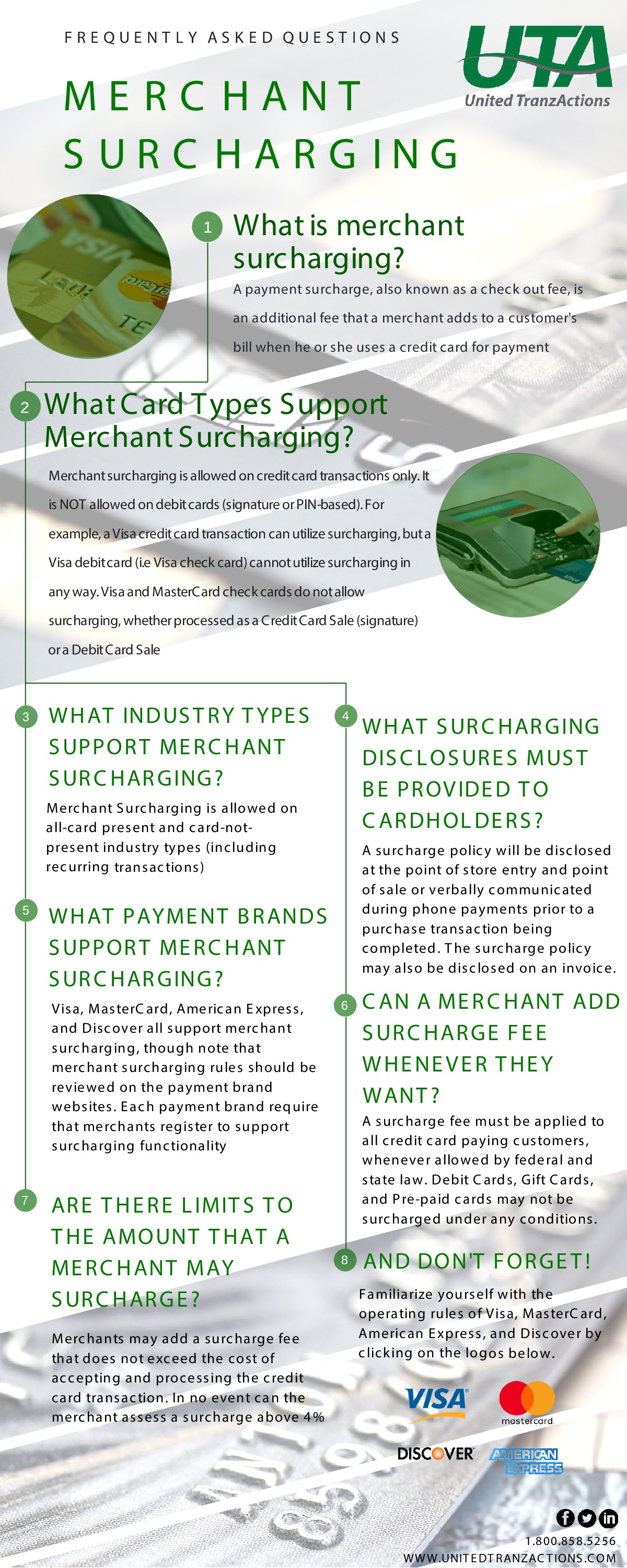A credit card surcharge is an additional fee that a merchant may pass to a consumer when her or she elects to use a credit card as a means of payment. In the past, state laws and major credit card companies prohibited surcharging, but that's now in the past as it's now permitted for a merchant to apply a surcharge to customers who pay with a credit card.
Surcharging Requirements
- You must be registered with Visa, MasterCard, and Discover (Registration process takes 30 days).
- Alert your processor 30-days before implementing surcharging.
- You must be sure your state allows for surcharging.
- You must inform your customers at the point of entry and the register that a surcharge will be added to their bill before completing the transaction.
- The amount of the surcharge must not exceed your retail cost of acceptance or 4%.
- The total amount plus the surcharge must be processed together as one transaction.
- The receipt must show the total amount on one line and the surcharge amount as a seperate line item on the receipt.
- You must never surcharge a debit card, gift card, or a prepaid card.

